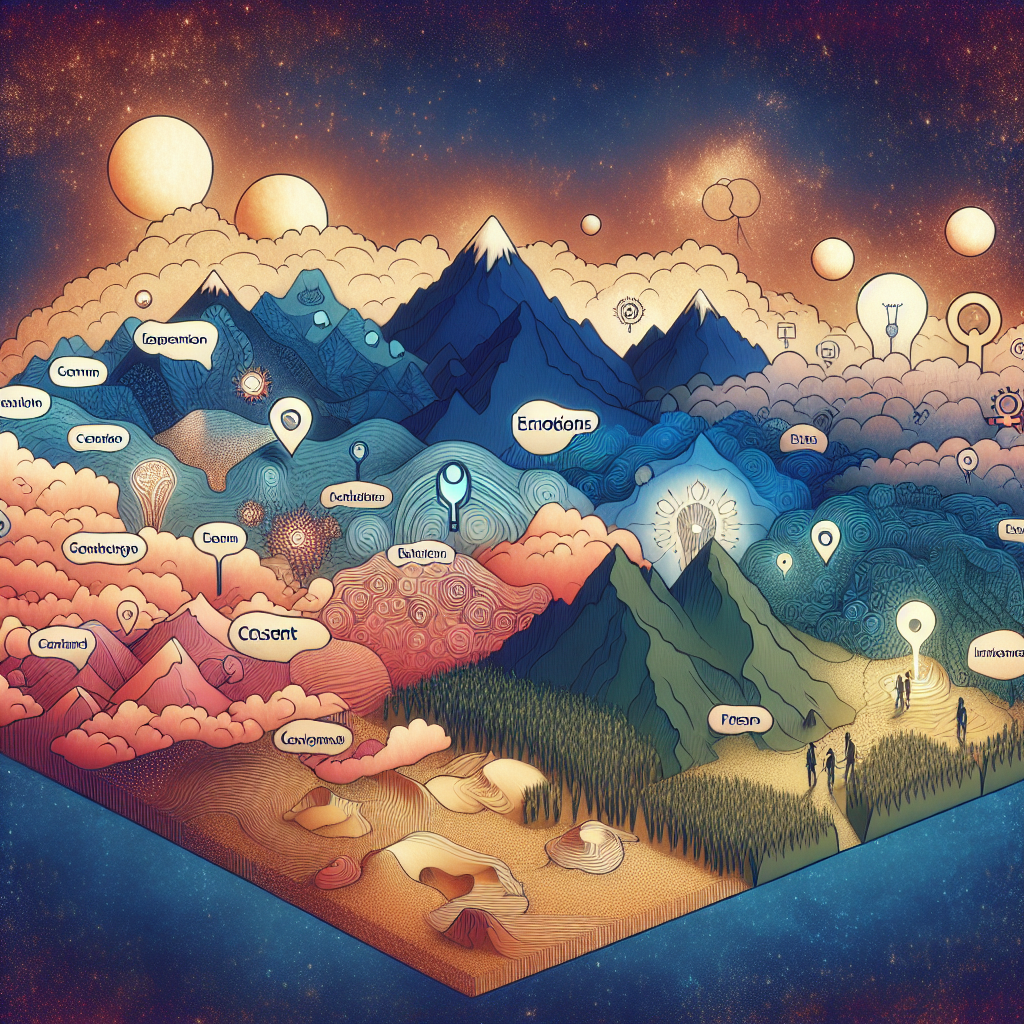Imagine navigating the complex world of sexuality and relationships, only to find yourself questioning what truly qualifies as a sexual experience. We often hear this term thrown around, but the boundaries and definitions can be elusive. In this article, we will explore the diverse perspectives and cultural nuances that shape our understanding of what is considered a sexual experience. Brace yourself for a thought-provoking journey into the realm of human intimacy and desire.

Defining sexual experience
Understanding the concept
Sexual experience refers to the range of physical, emotional, psychological, and social encounters one has in relation to their sexuality. It encompasses more than just the act of sexual intercourse and involves various aspects of human sexuality. Understanding the concept of sexual experience involves recognizing the multifaceted nature of human sexuality and exploring its different dimensions.
Different interpretations across cultures
Across different cultures, sexual experiences may be interpreted and understood differently. Cultural norms and values play a significant role in shaping individuals’ perceptions and behaviors related to sexuality. Some cultures may be more conservative and emphasize abstinence before marriage, while others may have more liberal attitudes towards sexual exploration. These cultural differences can shape individuals’ experiences and influence their understanding and expectations of sexual encounters.
Societal influences on perception
Society has a significant impact on how individuals perceive sexual experiences. Media, peers, and societal messages all contribute to shaping one’s understanding and expectations of sexuality. Social norms and expectations can influence whether certain sexual experiences are considered acceptable or taboo. It is important to acknowledge these influences and question societal expectations to ensure a healthy and authentic expression of one’s sexuality.
Physical aspects of a sexual experience
Types of physical acts
Sexual experiences encompass a wide range of physical acts beyond intercourse. These may include kissing, touching, oral sex, manual stimulation, and various forms of sexual play. It is essential to recognize that different individuals have different preferences and comfort levels when it comes to these physical acts. Respecting boundaries and consent is crucial to ensure a positive and enjoyable sexual experience for all parties involved.
Consent and boundaries
Consent is a fundamental aspect of any sexual experience. It involves obtaining clear and enthusiastic agreement from all parties involved before engaging in any sexual activity. Consent should be ongoing, meaning that it can be withdrawn at any point during the encounter if someone feels uncomfortable or desires to stop. Setting and respecting boundaries is equally important. It is vital to communicate openly and honestly about personal boundaries to ensure a safe and consensual sexual experience.
Importance of communication
Effective communication is key to a satisfying sexual experience. Openly discussing desires, preferences, limits, and expectations promotes a deeper understanding between partners. Clear communication helps establish mutual consent and ensures that both parties feel respected and comfortable throughout the experience. Creating an environment where individuals feel safe to express their needs and desires can enhance the physical aspects of a sexual encounter.
Emotional and psychological components
Intimacy and connection
Emotional intimacy is an integral part of many sexual experiences. Sharing a deep emotional connection with a partner can enhance the overall satisfaction and pleasure of a sexual encounter. Emotional intimacy can involve feelings of trust, vulnerability, and a sense of being deeply connected with the other person. Cultivating emotional intimacy is essential for creating a fulfilling sexual experience that goes beyond physical pleasure.
Emotional satisfaction
Sexual experiences can have a significant emotional impact on individuals. They can elicit a wide range of emotions, including joy, pleasure, excitement, and even love. Emotional satisfaction is derived from feeling desired, appreciated, and emotionally connected to one’s partner during a sexual encounter. A positive emotional experience contributes to overall satisfaction and creates a deeper level of intimacy between partners.
Psychological arousal
Sexual experiences are not solely based on physical stimulation. Psychological arousal plays a crucial role in shaping one’s sexual experience. Thoughts, fantasies, and the emotional state of mind can significantly impact the level of pleasure and satisfaction one derives from a sexual encounter. Understanding and embracing the psychological aspects of sexuality can enhance the overall quality of sexual experiences.
Developmental factors influencing perception
Sexual experiences across different life stages
Sexual experiences evolve throughout different life stages. Adolescence marks the beginning of sexual exploration for many individuals, while adulthood and later life stages offer opportunities for a deeper understanding of one’s sexual preferences and desires. Hormonal changes, personal and relational development, and societal influences all shape the perception and experiences of sexuality across different life stages.
Evolution of personal preferences
Sexual experiences help individuals develop and evolve their personal preferences. Through exploration and feedback from past encounters, individuals learn more about what they enjoy and what works for them. Personal preferences can encompass various aspects, including physical acts, intensity, frequency, and emotional connection. These preferences may change over time as individuals gain more self-awareness and experience different types of sexual encounters.
Impact of previous experiences
Previous sexual experiences can significantly impact one’s perception of future encounters. Positive experiences can lead to increased confidence, openness, and a sense of sexual self-worth. On the other hand, negative or traumatic experiences may create emotional and psychological barriers that can hinder future sexual experiences. It is important to acknowledge and address any past experiences that may be influencing current perceptions to ensure a healthy and positive sexual journey.

Cultural and religious influences
Varied beliefs and norms
Cultural and religious beliefs shape individuals’ attitudes and behaviors regarding sexual experiences. Different cultures and religions may have varying beliefs regarding premarital sex, monogamy, contraception, and sexual orientation. These beliefs can influence an individual’s perception of what is considered acceptable, moral, or taboo in terms of sexual encounters. Understanding and respecting diverse cultural and religious perspectives is essential to promote inclusivity and reduce discrimination.
Religious perspectives on sexual experiences
Religions often have specific teachings and guidelines regarding sexual experiences. These teachings can vary widely, with some religions emphasizing abstinence or strict monogamy, while others may have more permissive attitudes towards sexuality within the context of marriage. Religious perspectives can strongly influence individuals’ values and attitudes towards sex, shaping their behavior and choices regarding sexual experiences.
Cultural taboos and stigmas
Many cultures have certain sexual practices or expressions that are considered taboo or stigmatized. These cultural taboos can include topics such as masturbation, same-sex relationships, or alternative sexual practices. Stigmas surrounding these taboo topics can lead to shame, guilt, and even discrimination for individuals who engage in or identify with these experiences. Challenging cultural taboos and promoting a more inclusive and accepting society is crucial in fostering positive sexual experiences for all individuals.
Sexual orientation and identity
Diverse experiences among different sexual orientations
Sexual experiences vary among individuals with different sexual orientations. Heterosexual, lesbian, gay, bisexual, and transgender individuals may have unique experiences and preferences when it comes to sexual encounters. Understanding and respecting the diversity of sexual orientations and identities is essential for promoting inclusive and non-judgmental sexual experiences.
Exploring individual sexual identity
Sexual experiences can play a significant role in an individual’s exploration and development of their sexual identity. Engaging in different types of sexual encounters can help individuals discover their attractions, preferences, and orientation. It is crucial to create a supportive and accepting environment where individuals feel safe and empowered to explore and embrace their unique sexual identity.
Social acceptance and discrimination
Social acceptance and discrimination can heavily impact individuals’ experiences and perceptions of sexuality. While progress has been made towards greater acceptance of diverse sexual orientations, discrimination still persists in many parts of the world. This discrimination can lead to feelings of shame, isolation, or denial of one’s sexual desires and experiences. Promoting inclusivity, understanding, and respect for all individuals, regardless of their sexual orientation, is vital for creating a positive and safe environment for sexual exploration.

Sexual experiences beyond intercourse
Foreplay and sensual activities
Sexual experiences extend beyond intercourse and include a range of foreplay and sensual activities. Foreplay, which can involve kissing, touching, and oral stimulation, plays a crucial role in building anticipation and enhancing arousal. Sensual activities, such as massages and erotic play, focus on stimulating the senses and creating a deeper connection between partners. These experiences contribute to the overall pleasure and satisfaction of sexual encounters.
Non-penetrative sexual acts
Non-penetrative sexual acts refer to sexual activities that do not involve vaginal or anal penetration. These activities can include mutual masturbation, oral sex, or the use of sex toys. Non-penetrative acts provide opportunities for pleasure, arousal, and intimacy without engaging in traditional forms of sexual intercourse. They offer individuals and couples alternative ways to experience sexual pleasure and explore their desires.
Intimacy beyond physicality
Sexual experiences can encompass an intimate connection that goes beyond physicality. Emotional intimacy, trust, and understanding between partners contribute to a deeper level of connection and satisfaction. This intimacy can be fostered through open communication, shared values and beliefs, and a sense of emotional vulnerability. Building a strong emotional bond enhances the overall quality of sexual experiences and promotes long-term relationship satisfaction.
Boundaries and personal preferences
Respecting individual boundaries
Respecting individual boundaries is crucial in any sexual experience. Each person has unique limits and comfort levels when it comes to sexual encounters. It is important to actively listen, communicate, and seek consent throughout the experience. Recognizing and respecting these boundaries helps create a safe, consensual, and enjoyable environment for all involved parties.
Consent negotiation and communication
Consent negotiation and communication play a pivotal role in establishing boundaries and ensuring a positive sexual experience. Consent should be enthusiastic, ongoing, and freely given by all individuals involved. Open and honest communication allows partners to express their desires, ask for consent, and discuss any concerns or boundaries. Consistent communication fosters trust, promotes comfort, and helps navigate any potential misunderstandings during the sexual encounter.
Exploration of personal limits
Sexual experiences can involve exploring personal limits and expanding one’s comfort zone. It is important to approach this exploration with care, respect, and open communication. Pushing personal boundaries should be a consensual and gradual process, allowing individuals to feel safe and supported throughout the experience. Regular self-reflection and ongoing consent are essential in navigating the exploration of personal limits within sexual encounters.

Perception of casual and non-traditional sexual experiences
Hookups and one-night stands
Hookups and one-night stands are often seen as casual sexual encounters without a long-term commitment or emotional attachment. These experiences can provide opportunities for sexual exploration, adventure, and fulfillment of physical desires. It is essential to remember that engaging in hookups or one-night stands should always be consensual, respectful, and aligned with personal values and boundaries.
Open relationships and polyamory
Open relationships and polyamory involve consenting individuals engaging in multiple romantic or sexual relationships simultaneously. These non-traditional relationship structures can offer individuals opportunities to explore various emotional and sexual connections. Open and honest communication, respect for all parties involved, and clear boundaries are paramount in maintaining healthy and fulfilling experiences within these relationship dynamics.
Alternative sexual practices
Alternative sexual practices encompass a wide range of activities that deviate from traditional sexual encounters. These practices may include BDSM (bondage, discipline, dominance, submission, sadism, and masochism), role-play, fetish exploration, or other forms of kink. Engaging in alternative sexual practices requires informed and enthusiastic consent, clear communication, and respect for personal boundaries. Exploring these practices can enhance sexual experiences for those who are open to them and enjoy them within the bounds of all parties’ consent.
Evolution of consent and boundaries
Changing understanding of consent
The understanding of consent has evolved over time. In the past, consent may have been assumed or overlooked, leading to non-consensual and harmful sexual encounters. Today, there is a growing awareness of the importance of ongoing and affirmative consent. Empowering individuals to give and receive enthusiastic consent promotes healthier and more respectful sexual experiences.
Empowering individuals to establish boundaries
Empowering individuals to establish and maintain their boundaries is crucial in shaping positive sexual encounters. It is essential to educate individuals about their rights, the importance of consent, and how to communicate their boundaries effectively. Encouraging open dialogue and providing support for individuals in asserting their boundaries helps create a culture of respect and consent.
Consent education and awareness
Education and awareness regarding consent are key in addressing and preventing sexual misconduct. Providing comprehensive and age-appropriate consent education can help individuals understand the importance of consent, recognize signs of non-consent, and advocate for their own boundaries. Raising awareness about consent helps build a society where individuals feel safe, supported, and empowered within their sexual experiences.
In conclusion, sexual experiences encompass a wide range of physical, emotional, psychological, and social interactions related to one’s sexuality. Understanding sexual experiences requires exploring the different aspects, including physical acts, emotional connection, personal development, cultural influences, and individual preferences. Respecting boundaries, communicating openly, and obtaining enthusiastic consent are essential for creating positive and fulfilling sexual encounters. By fostering inclusivity, embracing diverse sexual orientations, and educating about consent, we can ensure that sexual experiences are safe, respectful, and pleasurable for all individuals.


